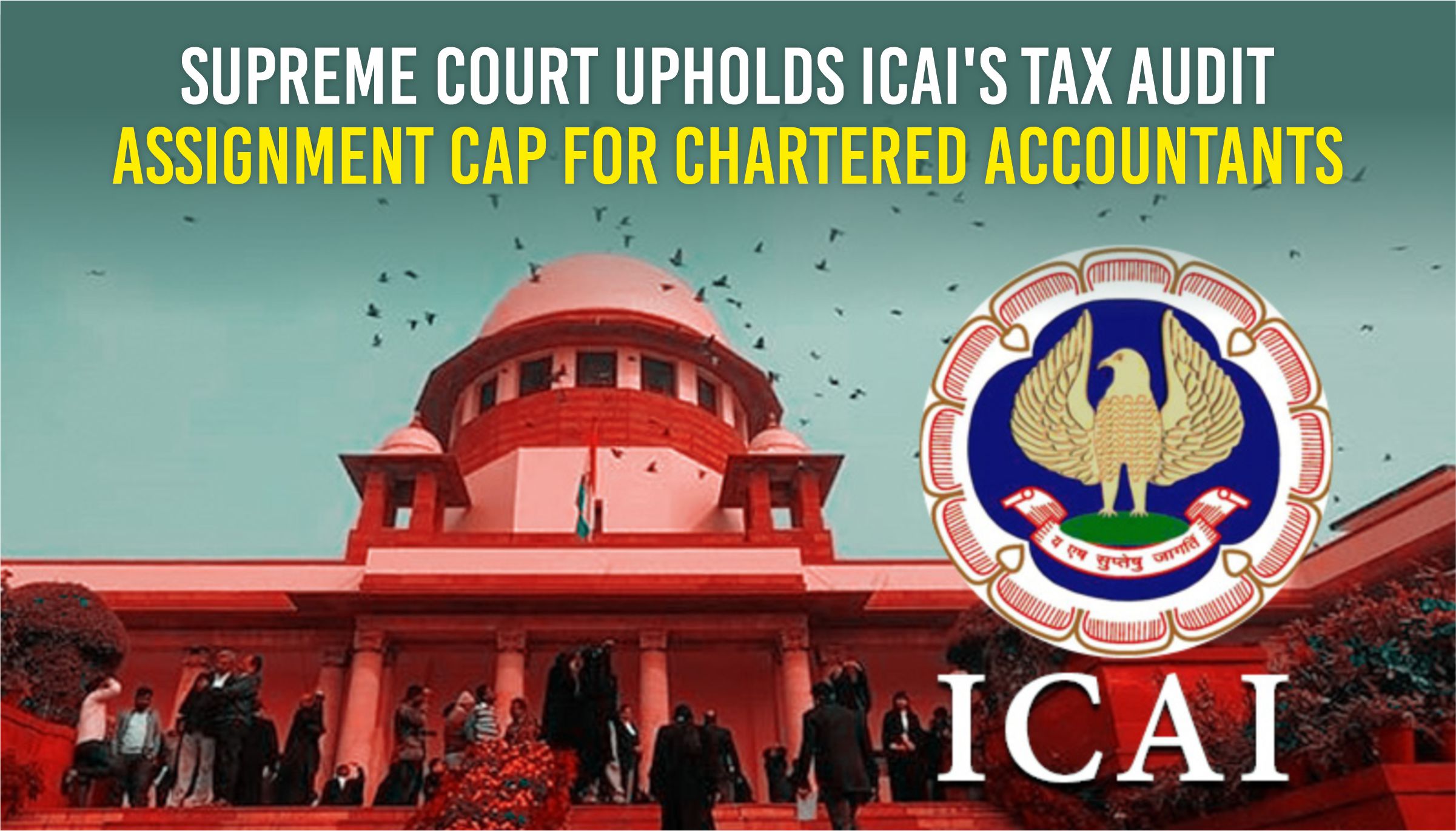SC Upholds ICAI’s Tax Audit Cap for CAs

On Friday, May 17, the Supreme Court upheld a rule issued by the Institute of Chartered Accountants of India (ICAI) that restricts Chartered Accountants from accepting more than the specified number of tax audit assignments in a fiscal year. Currently, the upper limit is set at 60 assignments. This decision reinforces the ICAI’s authority in maintaining professional standards within the accounting profession.
Background
The obligatory tax audit regime was introduced in 1984 with the insertion of Section 44AB in the Income-tax Act, 1961, effective from April 1, 1985. This section mandates that individuals or entities with total sales, turnover, or gross receipts exceeding a specified threshold must have their accounts audited by a Chartered Accountant. Prior to this, only companies and cooperative societies were required to have their accounts audited under respective acts.
In 1988, the ICAI issued a notification limiting the number of tax audit assignments a member could accept in a fiscal year. This was intended to combat tax evasion and fraudulent practices. Non-compliance with this provision was deemed professional misconduct. The notification was replaced by Guidelines issued on August 8, 2008.
Numerous writ petitions challenging these guidelines have been filed in various High Courts across India, leading to conflicting decisions. In 2020, the Supreme Court accepted an application from the ICAI to transfer all petitions to itself for a final determination.
Court’s Ruling
A bench of Justices BV Nagarathna and Augustine George Masih ruled that the rule (para 6.0 of Chapter VI of the Council Guidelines No. 1-CA(7)/02/2008 dated August 8, 2008, and its subsequent amendments) does not breach the fundamental right to practice any profession guaranteed under Article 19(1)(g) of the Constitution. The court’s key decisions include:
- Effective Date: The clause shall be effective from April 1, 2024.
- Quashing Disciplinary Proceedings: The court quashed disciplinary proceedings initiated against members for violating the clause, based on the doctrine of legal uncertainty.
- Authority to Increase Limits: The ICAI retains the authority to increase the number of audits a Chartered Accountant can perform.
ICAI’s Role Recognized
The bench made significant observations about the ICAI’s role in the accounting profession:
“ICAI has, over time, received recognition as a premier accounting body domestically and globally for maintaining the highest standards. The ICAI has also played a significant role in ensuring the dynamism of the CA course and the credibility of the examination. We commend that the ICAI must be committed towards the convergence of accounting and ethical standards with international standards…the true test, however, lies in enforcing these standards.”
The Supreme Court’s decision thus balances the need for professional regulation with the constitutional rights of Chartered Accountants, ensuring that standards are maintained without infringing on fundamental freedoms.
